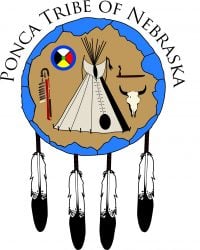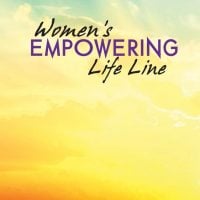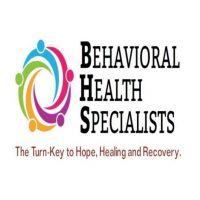Ponca Tribe of Nebraska
Drug Rehab Center in Norfolk, Nebraska
The Ponca Tribe of Nebraska is an addiction treatment facility located in Norfolk, NE which offers a wide range of levels of care including dual-diagnosis, outpatient, and residential services that are tailored to the individual's needs and circumstance, as well as providing case management services to address both physical and psychological challenges.
About Ponca Tribe of Nebraska in Nebraska
Ponca Tribe of Nebraska is an addiction treatment center located in Norfolk, Nebraska. This facility offers a comprehensive range of services to help individuals suffering from alcohol abuse, drug addiction, dual diagnosis, and mental health issues. Ponca Tribe of Nebraska has a level of care for all of its clients, ranging from dual-diagnosis to residential service. Its team of experienced and certified addiction treatment professionals provide a full-spectrum of services, including individual and group counseling, crisis intervention, relapse prevention, 12-step programs, and aftercare support. In addition, the facility offers medical and psychiatric services to assist with the recovery process. Ponca Tribe of Nebraska is accredited and licensed by the state of Nebraska, and the center also has an affiliation with the Joint Commission on Accreditation of Healthcare Organizations (JCAHO).
At Ponca Tribe of Nebraska, a holistic approach is used to assist individuals in their recovery process. The staff provides individualized treatment plans which focus on providing quality care with the goal of helping people learn to live healthier and more productive lives. Depending on the needs of the individual, treatment can include psychological therapies, medication management, family counseling, and spiritual counseling. The center also provides education and support services to its clients, support for family and friends, and resources for ongoing aftercare. Ponca Tribe of Nebraska is dedicated to helping individuals achieve long-term sobriety through providing safe and effective treatments that have proven effective.
Genders
Ages
Modality
Additional
Conditions and Issues Treated
Dual diagnosis refers to someone who has both an addiction and a mental or emotional illness. Dual diagnosis treatment includes therapy for both issues simultaneously, allowing for effective treatment of either.
Sometimes people with addiction disorders also have co-occurring disorders like depression, anxiety, bipolar disorder, etc. These require specialized treatment programs that address both drug and alcohol addiction as well as psychiatric illnesses. Some rehabilitation facilities provide patients with co-occurring disorders a program with highly integrated services and a clean, distraction-free environment.
Levels of Care Offered
This center offers a variety of custom treatment tailored to individual recovery. Currently available are Dual-Diagnosis, Outpatient, Residential, with additional therapies available as listed below.
Alcohol or drug addiction, or co-occurring disorders, are treated in an outpatient program. The patient must attend therapy and other programs at the facility but can return home each night.
Outpatient treatment allows recovering addicts to live at home while receiving addiction treatment. Outpatients can attend group sessions for a few hours per week. Outpatients may also continue to work full time and study/attend school without interruption if they choose.
Residential treatment programs are those that offer housing and meals in addition to substance abuse treatment. Rehab facilities that offer residential treatment allow patients to focus solely on recovery, in an environment totally separate from their lives. Some rehab centers specialize in short-term residential treatment (a few days to a week or two), while others solely provide treatment on a long-term basis (several weeks to months). Some offer both, and tailor treatment to the patient’s individual requirements.
Therapies & Programs
Different people react differently to various treatment options. Some drug rehabilitation centers offer individualized treatment that caters to the specific needs of a drug addict. The best treatment option varies on an individual depending on the type of drug abused, life history, medical condition of the person, social circumstances, and the environment they live in now.
When a person enters drug rehab, they usually have anti-drug associations such as withdrawal symptoms, stress, cravings, etc. The first step of drug rehab is to detoxify the body from any residual substances in it. Drug rehabilitation centers usually employ trained medical professionals to help in this process. Usually, the initial detoxification lasts for five days, where the person is monitored under close supervision.
Couples therapy is a treatment method used to help couples in which at least one member of the couple has a drug addiction. The treatment is designed to help the couple strengthen their relationship to minimize the effects of drug addiction on their lives and promote healthy communication between them.
Couples therapy can be used whether the addicted partner is using drugs or in recovery. It helps the couple create healthy communication and coping skills to minimize the problem-solving abilities of one partner, which can then be directed at solving issues related to their addiction. It also helps couples address problems that may be related to drug addiction. Couples therapy can help couples feel like a team and not feel like their partner is the problem.
Couples therapy is very challenging for both the drug addict and their partner. It requires an intense commitment between the two individuals to participate in the sessions and the homework assigned between sessions.
An additional benefit of couples therapy is that it can help make other types of treatment, such as 12-step programs, more effective.
Family therapy sessions typically involve the addict and their family members. During these sessions, a therapist will work with everyone involved to help them understand addiction and find healthy ways of coping without substance abuse.
Some addicts might feel embarrassed about their substance abuse problems. By encouraging family members to attend these sessions, therapists can show addicts that they’re not alone in dealing with addiction. Therapists can also work with family members to help them understand addiction and learn how to offer support and encouragement to their loved one as they deal with substance abuse issues.
Attending group therapy at Ponca Tribe of Nebraska in , is a useful way for those seeking sobriety to realize they aren’t the only one going through it.
This is when a group of people on different recovery phases get together and talk about what they’re going through, their triggers, successes, and failures. This can include alternative types of therapies too! Group therapy may occur on an outpatient or inpatient basis with groups that have no pre-existing relationships outside the session, unlike support groups where everyone already knows each other beforehand.
Trauma therapy is a form of therapy used to help people process and understand past traumas. This can help struggling addicts, as many people turn to drugs or alcohol to mask the pain of their past. Trauma therapy can be done in several ways, such as through visualization, discussion, and writing down thoughts and feelings. The goal is to help the individual understand why they are having problems coping with certain situations and changing how they think and react to things. This is often done in tandem with other therapies to treat the underlying issues associated with addiction.
The idea behind trauma therapy is that while some people can experience traumatic events and not have lasting psychiatric symptoms, many others will. In these cases, memories get hidden from consciousness but continue to influence how the person processes and copes with things in their life. They may avoid situations that resemble what happened or become suddenly angry or irritated to a situation that reminds them of a past event. With the help of a therapist, people can go back over memories and experiences. This helps them understand why they are having problems coping with certain situations and changing how they think and react to things.
Cognitive Behavioral Therapy is a type of psychotherapy that helps people address the thoughts and behaviors that may have led to their addiction. It also helps change negative thoughts into positive ones and promotes healthy communication between addicts and those around them. CBT is an efficient treatment for individuals suffering from all sorts of addictions.
Cognitive Behavioral Therapy (CBT) focuses on the underlying thoughts and behaviors that caused the problem of addiction in the first place and may cause a relapse. Negative feelings are common in drug abuse disorders, but they can lead to co-occurring disorders if not recognized. CBT involves strategies that help to change the behavior pattern by restructuring negative thoughts into positive ones. It helps to remove these feelings, and it provides long-term benefits. Also, CBT promotes self-awareness, self-control and can be administered as a mono-therapy or as part of combination therapy.
A 12-Step Program is used in treatment to help addicts stop abusing drugs and alcohol. The steps of the program include:
- Making amends.
- Believing in a higher power.
- Taking action to improve their life and admitting that they have a problem with substance use.
A cognitive restructuring step aims to change the way an individual thinks about their addiction to recover and live a life free of substance abuse. This method is extremely popular and very successful for many people who choose it as their treatment option.
Additional Details
Specifics, location, and helpful extra information.
Norfolk, Nebraska 68701 Phone Number(402) 371-8834 Meta DetailsUpdated November 25, 2023
Staff Verified
Ponca Tribe of Nebraska Patient Reviews
There are no reviews yet. Be the first one to write one.
Norfolk, Nebraska Addiction Information
Despite a total population of slightly less than 2 million residents, methamphetamines are one of the most commonly abused illicit substances in the state. Alcohol abuse is so common that a news article once referred to Nebraska as "America's 9th drunkest state". Although opioid abuse rates in Nebraska are not as high as those in other states, opioids are still involved in most overdoses.
The city of Norfolk, Nebraska, has one of the highest rates of drug addiction in the entire state. About 9% of the population in Norfolk has a drug addiction, while 16% struggle with alcohol addiction. 14% of all crimes in Norfolk are related to drug abuse. Some of the most commonly abused drugs in Norfolk include marijuana, heroin, cocaine, methamphetamine, and prescription drugs.
Treatment in Nearby Cities
- North Platte, NE (183.2 mi.)
- Niobrara, NE (57.5 mi.)
- Holdrege, NE (150.1 mi.)
- Seward, NE (80.8 mi.)
- Bellevue, NE (100.0 mi.)
Centers near Ponca Tribe of Nebraska
The facility name, logo and brand are the property and registered trademarks of Ponca Tribe of Nebraska, and are being used for identification and informational purposes only. Use of these names, logos and brands shall not imply endorsement. RehabNow.org is not affiliated with or sponsored by Ponca Tribe of Nebraska.



